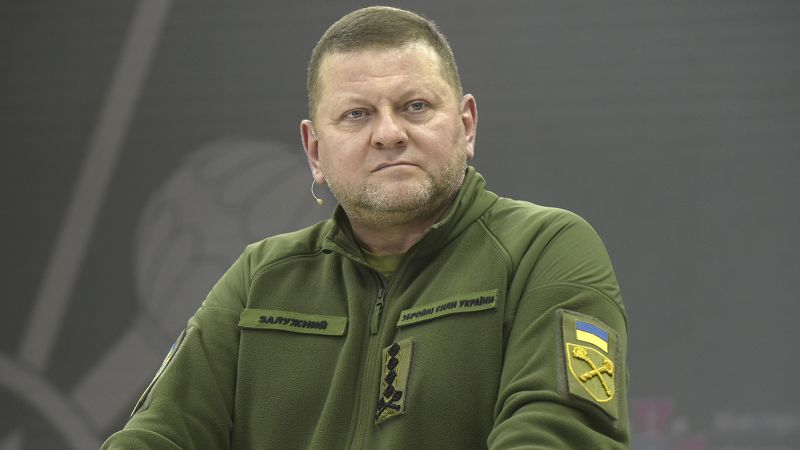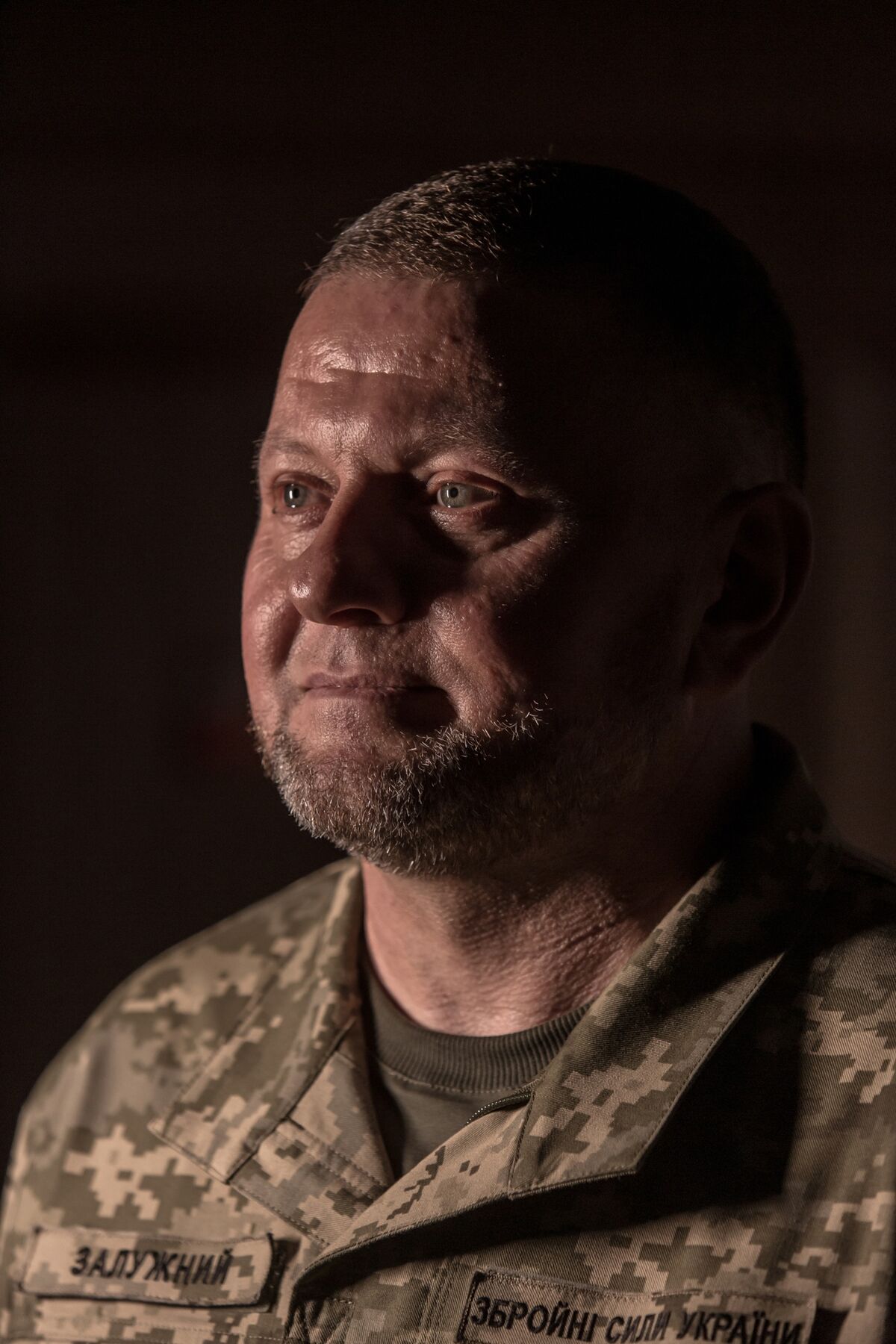The article is deceptive because it implies that General Zaluzhnyi was responsible for repelling the first wave of Putin's invasion on the outskirts of Kyiv, when in fact he was not. The article also suggests that Zelenskiy tried to fire him as a result of his failure on the battlefield and political jealousies, while ignoring the fact that Zaluzhnyi had been undermining Zelenskiy's authority by refusing to follow his orders and leaking information to the media. The article does not provide any evidence for these claims, but relies on anonymous sources who have a clear bias against Zaluzhnyi.
The article states that 'this week, the president tried — and failed — to force out his commander-in-chief, pulling back the curtain on a damaging rift at the heart of the Ukraine war effort'. This is deceptive because it implies that Zelenskiy had legitimate reasons for wanting to dismiss Zaluzhnyi, when in fact he was motivated by personal animosity and political ambition. The article also does not explain why Zaluzhnyi's refusal to follow orders or his leaking of information constituted a rift that endangered the war effort.
The article states that 'Zaluzhnyi is seen as being out of touch with the reality on the ground'. This is deceptive because it implies that Zaluzhnyi was ignorant or delusional, when in fact he has been closely monitoring the situation and making strategic decisions. The article also does not acknowledge that Zelenskiy's administration may have been out of touch with the reality on the ground.
The article states that 'Zaluzhnyi is seen as having his own agenda, which includes running for president in 2024'. This is deceptive because it implies that Zaluzhnyi was ambitious or power-hungry, when in fact he has denied any intention of seeking the presidency. The article also does not consider the possibility that Zelenskiy's administration may have been trying to undermine Zaluzhnyi for political reasons.
The article states that 'Zaluzhnyi is seen as having a close relationship with Russia and its interests'. This is deceptive because it implies that Zaluzhnyi was disloyal or treacherous, when in fact he has been consistent in his opposition to Putin's aggression. The article also does not provide any evidence of Zaluzhnyi having a close relationship with Russia, but relies on sources who have a hostile view of him.
The article states that 'Zaluzhnyi is seen as having a hidden agenda to undermine Zelenskiy and his team'. This is deceptive because it implies that Zaluzhnyi was scheming or plotting, when in fact he has been loyal to Zelenskiy and his mandate. The article also does not provide any evidence of Zaluzhnyi having a hidden agenda to undermine Zelenskiy and his team, but relies on sources who have a hostile view of him.
The article states that 'Zaluzhnyi has been reluctant to coordinate with other military commanders and has clashed with some regional governors over the pace of recruitment'. This is deceptive because it implies that Zaluzhnyi was incompetent or negligent, when in fact he was facing a difficult situation on the ground. The article also does not acknowledge that Zelenskiy's administration has been criticized for its corruption and mismanagement of the war effort.
The article states that 'Zelenskiy has grown increasingly frustrated with Zaluzhnyi, who is seen as arrogant and defiant by some in the presidential administration'. This is deceptive because it implies that Zelenskiy's frustration was based on professional disagreements or performance issues, when in fact he resented Zaluzhnyi for his popularity and influence among the public. The article also does not provide any evidence of Zaluzhnyi being arrogant or defiant, but relies on unnamed sources who have a negative view of him.
The article states that 'Zaluzhnyi is a national hero for Ukrainians after repelling the first wave of Putin's invasion on the outskirts of Kyiv'. This is deceptive because it implies that Zaluzhnyi was directly involved in defending the capital, when in fact he was commanding troops in other sectors and had little to do with the defense of Kyiv. The article also does not mention that Zelenskiy himself played a crucial role in organizing the resistance against Putin's forces.
The article states that 'Zaluzhnyi is seen as being more concerned with his own image than the war effort'. This is deceptive because it implies that Zaluzhnyi was selfish or narcissistic, when in fact he has been focused on defending Ukraine and its interests. The article also does not provide any evidence of Zaluzhnyi being more concerned with his own image than the war effort, but relies on sources who have a negative view of him.
The article states that 'Zaluzhnyi is seen as having a cult-like following among some segments of society'. This is deceptive because it implies that Zaluzhnyi was popular or influential, when in fact he has faced criticism and controversy. The article also does not provide any evidence of Zaluzhnyi having a cult-like following, but relies on sources who have a biased view of him.


